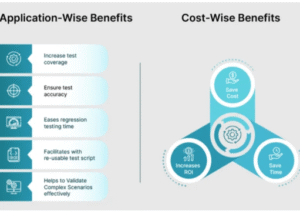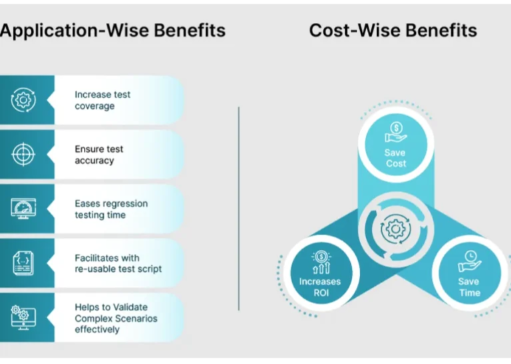Automation of Oracle testing supports dependability and efficiency.
Automation of Oracle testing supports dependability and efficiency. Basic component of organisational infrastructure, Oracle apps manage data and critical business activities. Oracle testing automation offers several advantages beyond only improved output.
Knowing these benefits helps businesses to appreciate the need of investing in test automation for their Oracle installations more strongly.

Quick cycles of test releases and execution
Automated testing speeds through validation of Oracle applications and their many components. Test scripts might run hundreds of thousands of test cases continuously without human involvement for fraction of the time needed for hand testing.
Faster release cycles and more frequent installations enabled by this acceleration help to maintain high degrees of quality. Reduced time to market for updates and new features follows fast change validation, problem identification, and development team fix implementation by way of more agile development methodologies.
Ensuring Reducing Human Mistake and Consistency
Commonly found in Oracle systems are sophisticated business logic and various data validations requiring exact testing. Automated testing ensures continuous test execution every and every time, therefore eliminating the chance of human error in activities including repeated testing.
Since they run exactly the same every time, test scripts produce consistent results that are easily compared throughout several test cycles. This consistency particularly for compliance and important organisational tasks helps preserve high testing standards and increases test result credibility.
Improved depth and covering of the tests
Automation makes complete testing of Oracle applications among several modules, environments, and scenarios possible. Large test suites covering a spectrum of company operations, data scenarios, and human behaviours can be produced by testing teams from many backgrounds.
Automated tests can confirm difficult scenarios—load testing with many concurrent users or testing with great volumes of data—that would be time-consuming or impractical to test manually. More general coverage enables the identification of any issues hand testing could miss.
Real-time Reporting and Monitoring.
Oracle test automation provides real-time feedback using rich analytics and test execution data. Real-time tracking of testing activity helps testing teams follow development, fast find failing test cases, and assess mistake trends.
Approach of Cost and Resource Maximising
Automating tedious testing procedures helps companies to better deploy resources and reduce long-term testing costs. For test teams, while automated scripts handle standard validations, test planning, exploratory testing, and growing test coverage may be more strategic concerns.
This improvement creates less manual work and better application of testing techniques in cycles of regression testing. Automated testing runs off-peak to maximise test environment use and speeds the testing process as well.
Last thought
Oracle test automation addresses dependability, agility, and efficiency of business processes. Officially a partner in Oracle test automation, Opkey leverages AI-powered automation to streamline and accelerate testing, therefore saving 80% of human effort.
Opkey helps companies to ensure end-to- end testing with minimum effort by means of its more than 7,000 pre-built Oracle Fusion tests, no-code test creation, and quick execution. Its artificial intelligence-driven insights identify test gaps, therefore enhancing coverage and reducing release times. days.
